Services
What can we offer you?
Wide range of
medical services
We Gurukrupa Clinic, always take care of your unique needs, from specialized diagnostics to personalized treatment plans.

Diabetes Mellitus
Heart Disease
Heart and blood vessel disease, also called heart disease, includes numerous problems, many of which are related to atherosclerosis. Atherosclerosis is a condition that develops when a substance called plaque builds up in the walls of the arteries. This build-up narrows the arteries, making it harder for blood to flow through. If a blood clot forms, it can block the blood flow. This can cause a heart attack.
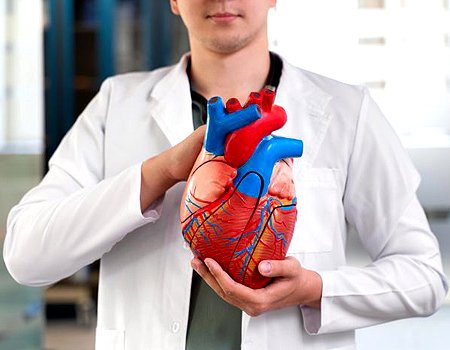
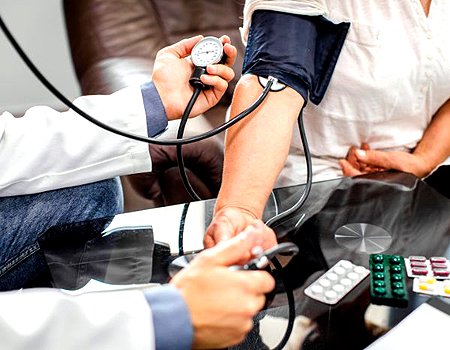
Hypertension (BP)
Hypertension (high blood pressure) is when the pressure in your blood vessels is too high (140/90 mmHg or higher). It is common but can be serious if not treated. People with high blood pressure may not feel symptoms. The only way to know is to get your blood pressure checked.
Thyroid Disease
Your thyroid creates and produces hormones that play a role in many different systems throughout your body. When your thyroid makes either too much or too little of these important hormones, it’s called a thyroid disease. There are several different types of thyroid disease, including hyperthyroidism, hypothyroidism, thyroiditis and Hashimoto’s thyroiditis.
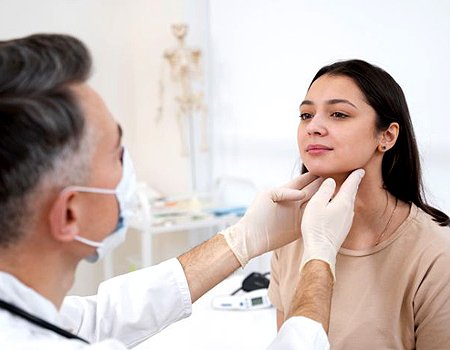

Stroke (Paralysis)
An ischemic stroke occurs when the blood supply to part of the brain is blocked or reduced. This prevents brain tissue from getting oxygen and nutrients. Brain cells begin to die in minutes. Another type of stroke is a haemorrhagic stroke. It occurs when a blood vessel in the brain leaks or bursts and causes bleeding in the brain. The blood increases pressure on brain cells and damages them.
Infectious Disease
Infectious diseases are disorders caused by organisms — such as bacteria, viruses, fungi or parasites. Some infectious diseases can be passed from person to person. Some are transmitted by insects or other animals. And you may get others by consuming contaminated food or water or being exposed to organisms in the environment. Signs and symptoms vary depending on the organism causing the infection, but often include fever and fatigue.


Lungs & Asthma
Lung disease is any problem in the lungs that prevents the lungs from working properly. There are three main types of lung disease: Airway diseases, Lung tissue diseases and Lung circulation diseases.
Asthma is a chronic lung disease affecting people of all ages. It is caused by inflammation and muscle tightening around the airways, which makes it harder to breathe. Symptoms can include coughing, wheezing, shortness of breath and chest tightness. These symptoms can be mild or severe and can come and go over time.
Stomach Disorder
Common digestive disorders include gastroesophageal reflux disease, cancer, irritable bowel syndrome, lactose intolerance and hiatal hernia. The most common symptoms of digestive disorders include bleeding, bloating, constipation, diarrhoea, heartburn, pain, nausea and vomiting.

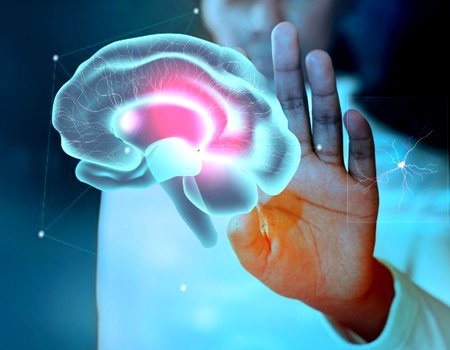
Brain Disorder
There are many types of brain diseases, ranging from injuries and infections to brain tumors and dementia. They can impact your ability to function and carry out daily activities. Outcomes vary widely depending on the type of brain disease, location and severity of the condition.
Types include Alzheimer’s disease and Parkinson’s disease. Encephalitis (inflammation in the brain), which can lead to problems such as vision loss, weakness, and paralysis. Genetic brain disorders, which are caused by changes in genes (also called variants or mutations).
Arthritis
“Arthritis” literally means joint inflammation. Joints are places where two bones meet, such as your elbow or knee. There are many different types of arthritis with different causes and treatments. In some types, other organs, such as your eyes, heart, or skin, can also be affected.
Arthritis is extremely common, especially in people older than 50. It causes joint pain, stiffness and inflammation. Your provider will help you understand which type of arthritis you have, what’s causing it and which treatments you’ll need. You may need a joint replacement if you have severe arthritis that you can’t manage with other treatments.

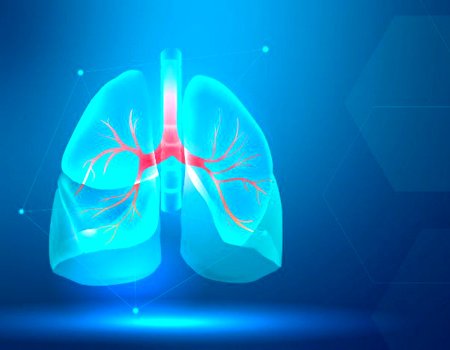
Tuberculosis
Tuberculosis (TB) is an infectious disease that most often affects the lungs, but it can also affect other organs like your spine, brain or kidneys and is caused by a type of bacteria. It spreads through the air when infected people cough, sneeze or spit. Tuberculosis is preventable and curable. About a quarter of the global population is estimated to have been infected with TB bacteria.
HIV & AIDS
HIV (human immunodeficiency virus) is a virus that attacks the body’s immune system, making it hard to fight off other diseases. If HIV is not treated, it can lead to AIDS (acquired immunodeficiency syndrome). There is currently no effective cure. Once people get HIV, they have it for life. But with proper medical care, HIV can be controlled.
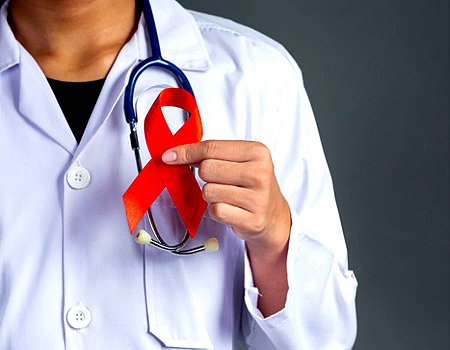

Restorative Dentistry
Restorative dentistry focuses on repairing or replacing damaged or missing teeth. These procedures help improve oral health and function. Common dental restorations include crowns, bridges and implants. Restorative dentistry gives you the best chance at long-lasting oral health. Your dentist can help restore your smile to full function by fixing damaged or decayed teeth. This improves your ability to eat, speak and chew.
Nutrition & Diet
Diet refers to the total amount of food consumed by individuals; whereas nutrition is the process of utilising food for growth, metabolism and repair of tissues.
A variety of medical problems can affect your appetite. Your illness, medicines or surgery can cause these problems. Many people become frustrated when they know they need to eat to get well but they aren’t hungry, or when they gain weight because they are fatigued and unable to exercise. At that time you need proper nutritionist and diet consultant to get back healthier life once again.


Psychiatry
Psychiatry — the branch of medicine focused on the diagnosis, treatment and prevention of mental, emotional and behavioural disorders.
Psychiatrists assess both the mental and physical aspects of psychological conditions. They can diagnose and treat these conditions.
